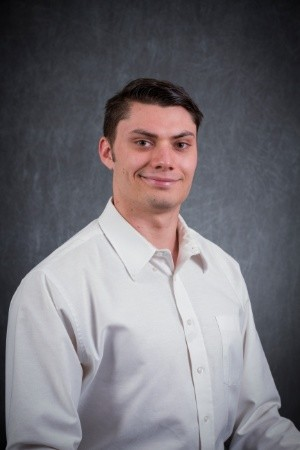
ECSE: What PhD Program are you in? What year are you? Where did you complete your BS and MS?
Christopher Wiedeman (CW): I am in the Electrical and Computer Systems Engineering PhD program at RPI. This year has been my first both at RPI and in New York. Before this, I worked and studied in Tempe, Arizona, where I received my BS in biomedical engineering from Arizona State University.
ECSE: Who are you working with at RPI?
CW: I work closely with my advisor, Dr. Ge Wang, who leads the AI-based X-ray Imaging System (AXIS) Lab at RPI.
ECSE: What are your general research areas?
CW: Very broadly, my research area is in signal processing and artificial intelligence, especially as applied to deep learning in medical imaging.
ECSE: What is your research project?
CW: Like any research project, the details of mine are in constant evolution. Generally speaking, however, my research project is about leveraging deep learning and artificial intelligence in a novel, hybrid x-ray and ultrasound medical imager.
ECSE: How do you feel winning the grant? How many years is the grant for?
CW: Being chosen for the NSF graduate research fellowship is an absolute honor, and I am elated to receive such an offer. While the funding period lasts three years, the other benefits of the fellowship extend beyond this.
ECSE: What are you most looking forward to about this research?
CW: More than anything, I look forward to learning from and collaborating with others in my field of research. Already, I have interacted with many talented and dedicated professionals and mentors, and I know that the best is yet to come.
ECSE: Anything else you’d like to add?
CW: Above all, I’d like to thank both the RPI students and faculty who work with me each day. It is no secret that RPI is a challenging school, and various external factors frequently compound this difficulty. Despite this, the dedication of many faculty members toward student success, as well as the solidarity within the student body make these challenges not only manageable, but worthwhile.

